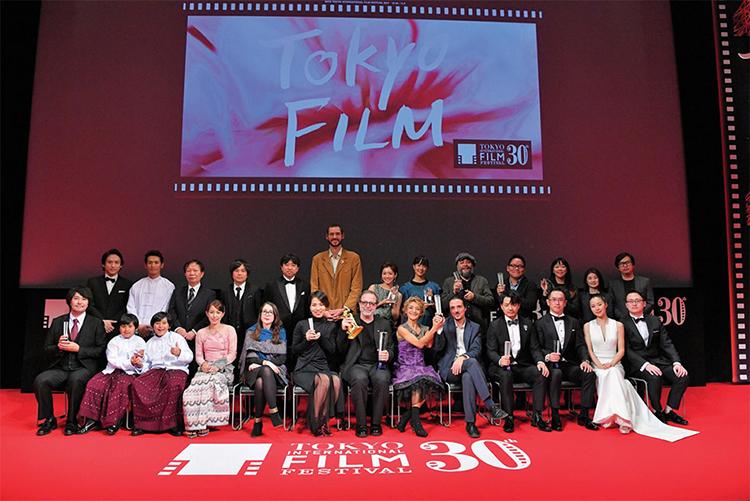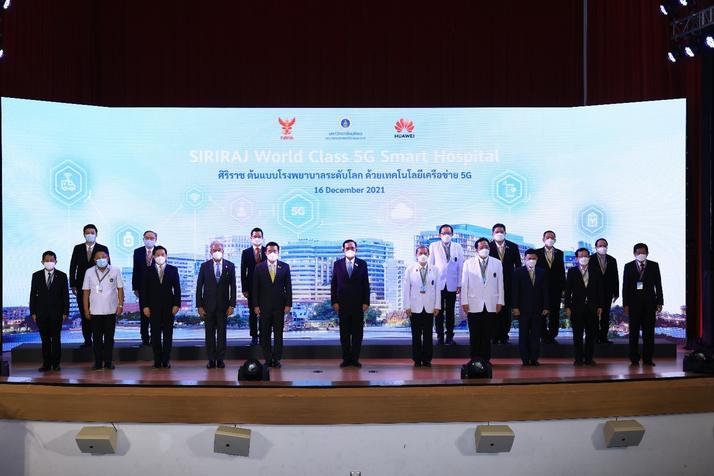International Film Festival Q & A from the creator's perspective "From the Tokyo International Film Festival to the World"
- 978
- 98
International Film Festival Q & A from the creator's perspective "From the Tokyo International Film Festival to the World"
- By huawei-accessories.com
- 28/04/2022
Tweet Tweet
Image courtesy of Tokyo International Film Festival
PROFILE Born in Paris, France. Raised in Switzerland. He works for the Industrial Bank of Japan (currently Mizuho Bank), and after retiring he is involved in the distribution and promotion of films, as well as the producer of documentary films and the management of the French Film Festival. After that, he entered the Tokyo International Film Festival and is also the programming director of the "Japanese Film: A Certain Perspective" (17th-25th) and "Japanese Film Splash" (26th-) divisions. Since 2007 he has been the programming director of the "Competition" division.
Q1 What is TIFF's Japanese film division that creators should pay attention to?
A. There are also the "Japan Now" section, which was selected from TIFF's unique perspective, and the "Japanese Movie Classics" section, which screens digitally restored and timeless masterpieces, from among the works that represent Japan this year. What I would like the creators to pay particular attention to is the "Japanese Movie Splash" category, which is limited to world premiere screenings.
In 2004, we established the predecessor, "Japanese Film / Un Certain Regard," and started targeting slightly smaller domestic commercial films. From the beginning, what about Japanese films in the "Special Invited Works" category? Isn't it? " So, in 2009, I decided to be independent. That year's Best Picture was the documentary "Live Tape" (2009), in which director Tetsuaki Matsue shot the entire 74-minute film in one cut. Mr. Matsue was and still is a fair person who never says to stop listing because TIFF has a high threshold, and in fact, he got a good reputation as "Director Matsue will sell in TIFF!". The next year's Best Picture is "Hospitality" (2010) directed by Koji Fukada. In the next few years, it has become possible to strongly emphasize the characteristics of a domestic competition division that emphasizes independence.
It is often referred to as the young artist category, but it is not necessarily limited to “young”. However, if you focus on independent works and recruit them, the number of applications for new directors may increase as a result. As a spirit, I want people of all ages to take on the challenge of overseas, and I want to send it overseas. The department that supports such independent films is the Japanese movie splash department.
▲ Director Tetsuaki Matsue, Kenta Maeno, and Tsugumi Nagasawa who participated in "Live Tape".Image courtesy of Tokyo International Film Festival
Q2 Which director attracted attention in the Japanese movie splash section?
A. The first is probably director Koji Fukada, who won the Un Certain Regard Award for Best Picture in Japan. The next work of "Hospitality" "Au revoir l'oeil" (2013) won the Grand Prix at the Three Continents Festival, and "Au revoir l'oeil" and "Goodbye" (2015) were exhibited in the competition section of TIFF. rice field. The following year, "Standing in the Fence" (2016) at the Un Certain Regard at the Cannes Film Festival was called the Jury Prize. He may be exceptional, but I think he is valuable to both TIFF and the Japanese film industry.
Director Rikiya Imaizumi, who was able to welcome us to this year's TIFF in the competition section, is one of them. Director Imaizumi has exhibited for the first time in the Japanese movie splash category in 2013 "Sad Tea", three times in the same category, once in the special invitation category, and so on, a total of five times including this year's competition exhibition. I'm a director with a deep connection. He is rarely said to be a director raised by TIFF, but it's a ridiculous mistake and the opposite. Japanese movie splash is a department raised by Mr. Imaizumi.
▲ Director Koji Fukada when he won the Best Picture Award in the Un Certain Regard category for Japanese films in 2010.
Image courtesy of Tokyo International Film Festival
Q3 What are the merits of creators listing in TIFF?
A. Director Rikiya Imaizumi said at this year's TIFF press conference, "We have worked hard together with directors Daigo Matsui and Hirobumi Watanabe of the same generation to reach this point." "I think. I think that the relationship with people with the same aspirations is the best asset for living as a director in the future.
It is the same in the sense of "encountering" with overseas programmers. We invite programmers from major film festivals and foreigners every year, such as Cannes, Venice, San Sebastian, Rotterdam, etc., but the directors set up a corner to present themselves, and then had a dinner. Almost every night during the session, we hold a drinking party called "Exchange Party". For example, a large number of presses from overseas and overseas directors will participate in parties hosted by the Japan Foundation and exchange parties of the TIFF programming & promotion team, so we invite Japanese exhibitors to the party. Also that. I myself participate in overseas film festivals and experience the experience that encounters with people lead to the next "something" more than encounters with movies. It's a rough drinking party, but we have set up such a "matchmaking place" as much as possible during the session, so I would like you to take advantage of it.
The rest is a guest pass issued to those who participate in TIFF. For example, director Hirobumi Watanabe and his younger brother, music director Yuji Watanabe, use the pass to watch movies from one end to the other. They said that they would study a lot, so I think it would be a fertilizer as a creator to take the opportunity to "watch movies" during the session.

▲ The state of the exchange party "Cinema Night". Many such places are set up during the session.
Image courtesy of Tokyo International Film Festival
Q4 How will interaction with overseas filmmakers be a plus?
A. At TIFF, I would like you to actively interact with Asian filmmakers. Many Asian film directors are conscious of co-production with other countries. It's hard to raise funds for production in my own country, so for example, I'm going around producers in Thailand, Malaysia, and the Philippines to take on the challenge of co-producing movies on the scale of 30 to 50 million yen. If you can raise funds across several countries, you may be able to compete with your own original script. I hope that you will be inspired by the contact with Asian filmmakers who are opening up such a harsh reality.
I also want you to realize that the Japanese film industry is special. To really compete overseas, you need specific strategies and knowledge rather than talent. I think it's not a waste to know how the movie business works, even if it's a director.
▲ PD Yatabe explains the works of the Japanese movie splash section at the press conference.
Image courtesy of Tokyo International Film Festival
Q5 Can anyone enter TIFF?
A. Everyone is open to the door because all you have to do is enter the data in the entry form of the application site. I used to have DVDs mailed to me, but now almost 100% of Japanese movies are Vimeo or YouTube viewing links. There is only one entry entrance for both competitions and Japanese movie splashes, and the division is selected for each work.
The rule is that it is a "new work" that will reach the world premiere at TIFF. Also, the competition is a "principle", but documentaries cannot be included. The only exception in the past is "Flashback Memories 3D" (2012) directed by Tetsuaki Matsue. That movie had the power to go beyond the boundaries of fiction and documentary. On the contrary, the Japanese movie splash is OK, and the documentary "Ai to Ho" won the Best Picture Award last year as well.
The length of the work is set to "60 minutes or more" and there is no upper limit, but if it exceeds 120 minutes, it is expected that the work will be good, and a common sense length is desirable. When it comes to independent works, the director himself often edits them, so it may be difficult to cut them. There are many things that I would like to see if you make a selection and summarize it a little shorter.
▲ An entry form common to all competitive categories, including the Japanese movie splash category. Anyone can access it from the TIFF official website during the application period.
Q6 What are the selection criteria and judging method for the entered works?
A. TIFF will be preliminarily selected by a staff of 8 to 10 people, and while referring to the evaluations given there, it will be decided at once if it is narrowed down to about 40. I'm also in charge of the competition, so I wonder if I've seen about 500 works including foreign films during the three-month selection period (laughs).
It's difficult to put the selection criteria into words, but I think it's important to consider how each director views the world. If you don't reflect a certain degree of sociality in the movie, you can't compete overseas. I am very conscious of whether I can convey the fun of this work by becoming a foreigner who does not understand Japanese and looking at it with English subtitles.
By the way, it's okay to be in post-production at the time of entry. It seems that there are many people who think that they can not apply if it is incomplete, but I am looking at the work like a mountain in such a state, so I want you to put it out flexibly. However, when it comes to "Isn't post-production important?", That's not the case. It's my personal impression, but I don't think there is a common trend in the color and look of the selected works. It means that you have established your own color that is not a trend.
Image courtesy of Tokyo International Film Festival
Q7 Why are there so many new directors' works in this year's TIFF?
A. From the time we entered the final selection stage, we were talking among the staff that "there are likely to be more newcomers this year," but as a result, lively newcomers stood out. The symbolic one is "Above Sea Level", a graduation work of the Faculty of Media Studies, Josai International University. Director Kensei Takahashi is only 22 years old, but he has a lot of depth in the subject matter he deals with, and he is sitting down. It was our common opinion that we should evaluate the positive side rather than the rough negative side.
Also, in the sense that I'm looking forward to the results of this year, I'm also paying attention to "School without me", which had a wonderful script. Actually, this work is a so-called "shooting site thing", but then "Don't stop the camera! I can't avoid talking about it (laughs). The production cost is said to be 3 million yen, but that big hit is like a miracle that may be the first and last in the history of Japanese movies, rather than once every few decades. Inspired by that success, I'm really worried that it would be hard if there were more 1 million yen movies in next year's entry.
Also, in terms of new directors, this year's topic is the short omnibus work "21st Century Girl," in which 14 female directors born in the 1980s and 1990s and one animation director participated. This is because the "#Me Too" problem has been going on since last year, and raising awareness of the small number of female directors has become a big topic in Cannes. At that time, director Yuki Yamato, who was in charge of the production, came to ask for the exhibition of the same work. At that time, he said, "My dream is that half of the movies released in theaters will be directed by women." While listening to her aspirations, I thought, "This should be done in TIFF." If it's a work where up-and-coming female directors gather, I think the Japanese movie splash section is more suitable as a place to stay. The actresses who are appearing, including Ai Hashimoto, are gorgeous, and I wonder if the red carpet will be a big part. I think it's very luxurious and conspicuous. The eight finalists also include two female directors, Mayu Akiyama and Moe Oki. I think it would be good if this gender ratio also came to the opposite era.
▲ This year's movie world's biggest featured work "Don't stop the camera! 』. © ENBU Seminar
▲ Yuki Yamato, who was in charge of producing "21st Century Girl," is also a director. © 21st Century Girl Production Committee
▲ "Above Sea Level" directed by Kensei Takahashi, a 22-year-old up-and-coming director. © 2018 YELLOW COUPLE
▲ "I'm Not Here" is a work by director Shintaro Hihara, who is also an incumbent teacher at a vocational school. © MONKEY ACROBAT STUDIO
teach! Yatabe PD
I would like young directors to take on the challenge of the Rotterdam International Film Festival in the Netherlands. Since the door is wide open, there is a high probability that you will be selected, and it is a film festival with a system in which young directors can interact with filmmakers including producers. I would like to use TIFF as a model, but the history is different.
The Locarno International Film Festival is also wonderful in the sense that it is a film festival full of independent spirit that the Japanese Film Splash Division should emulate. The director will change from next year, so I'm looking forward to seeing what the trends will be.
▲ The 2013 Rotterdam International Film Festival taken by PD Yatabe.
Image courtesy of Tokyo International Film Festival
The 31st Tokyo International Film Festival Japanese Film Splash Division 3 Major Topics
In addition to the Best Picture Award, the Director's Award was newly established in the Japanese Film Splash category with the help of PD Yatabe, who said, "Award as many independent films as possible in Japan!" This year's division is based on the composition of PD Yatabe, "Director Masaharu Take, who has a career and a track record, will meet seven new directors." Including a special screening frame where 15 female directors gather, we have more fresh works than usual.
[Overview of the 31st Tokyo International Film Festival] Date: October 25th (Thursday) -November 3rd (Saturday / holiday) Venue: Roppongi Hills, EX Theater Roppongi, etc. https://2018.tiff-jp.net
● Reprinted from the November 2018 issue of Video SALON





![[VLOG interlocking report] Try the combination of Manfrotto's Nitro Tech 608 and iFootage's TC6 [VLOG interlocking report] Try the combination of Manfrotto's Nitro Tech 608 and iFootage's TC6](https://website-google-hk.oss-cn-hongkong.aliyuncs.com/drawing/article_results_9/2022/3/25/278166fcc7181b73dd99af1b87fd6482_0.jpeg)









